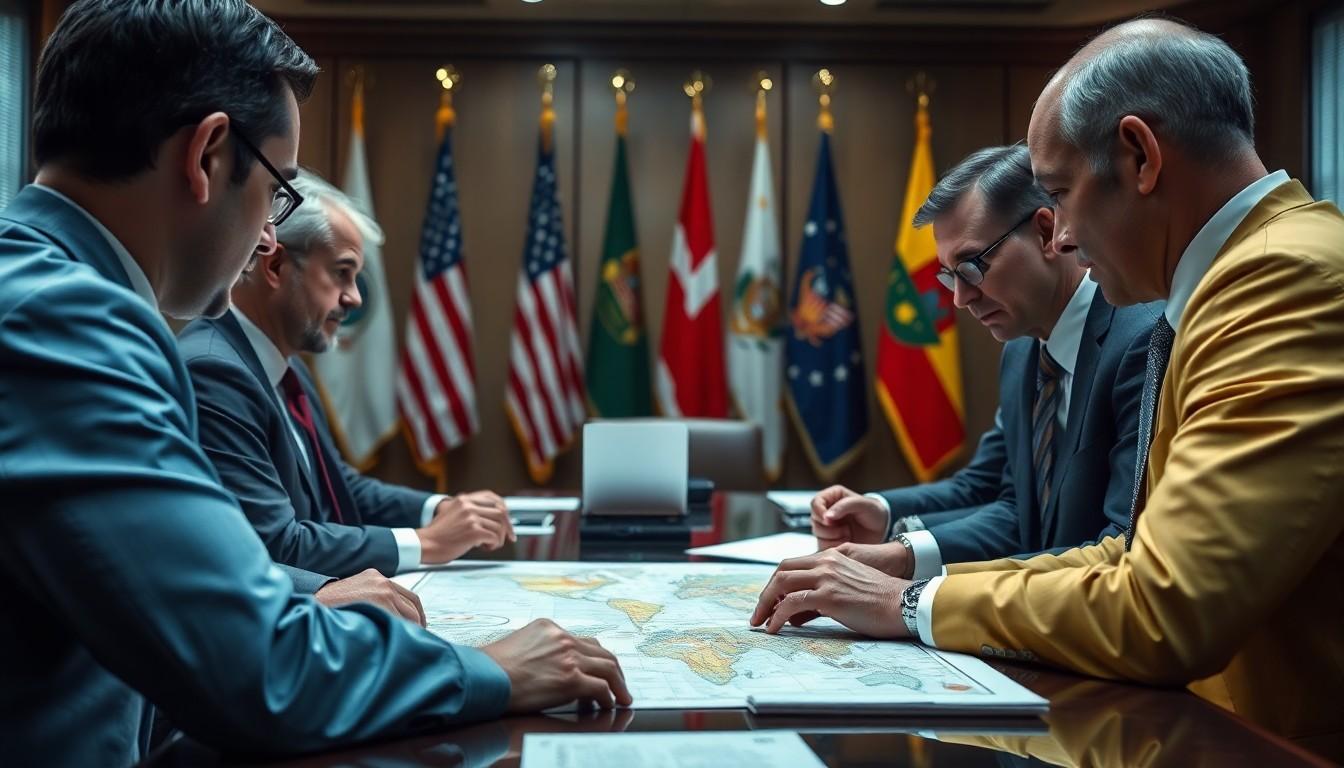The Best Fluffy Pancakes recipe you will fall in love with. Full of tips and tricks to help you make the best pancakes.

International Relations Realism: The Untold Truth Behind Power and Strategy in Global Politics
In the chaotic world of international relations, where alliances shift faster than a politician’s promises, realism stands out like a lighthouse in a stormy sea. This theory, grounded in the harsh realities of power dynamics, suggests that nations act primarily in their own self-interest. It’s like a game of chess—every move calculated, every alliance scrutinized, and every betrayal lurking just around the corner.
International Relations Realism
International relations realism emphasizes the role of power and self-interest among states. It provides a pragmatic lens for understanding the complexities of global interactions.
Definition of Realism
Realism in international relations defines states as primary actors, prioritizing national interest. The theory argues that competition for power shapes interactions between nations. Realists assert that moral considerations often take a backseat to strategic interests. Conflicts and alliances arise from this pursuit of power. Ultimately, states operate in an anarchic international system, where security considerations dominate their actions.
Historical Context
Historical roots of realism trace back to ancient philosophers like Thucydides and Machiavelli. In the aftermath of World War II, scholars like Hans Morgenthau further developed these ideas. The Cold War era solidified realism as a dominant theory in international relations, emphasizing power struggles. Realist principles gained attention during this period due to enduring geopolitical tensions. Current events still reflect realism’s influence, demonstrating its lasting significance.
Key Theoretical Tenets

Realism in international relations revolves around several core principles that shape its understanding of global affairs. Two primary tenets are power politics and national interest.
Power Politics
Power politics serves as the backbone of realism. States pursue power to ensure their survival in an anarchic international system. States prioritize military and economic strength, often leading to competition and conflict. Dominance often emerges through strategic alliances and calculated maneuvers. The focus on capability over morality defines interactions, as states act primarily in their self-interest. Historical events, such as power struggles during the Cold War, exemplify these dynamics, showcasing how nations vie for influence and control.
National Interest
National interest ranks high in realist thought. It encapsulates the goals and objectives a state seeks to achieve to maintain security, political stability, and economic prosperity. Realists argue that decisions in foreign policy derive from a nation’s aim to enhance its power and position. Realism downplays ideology, emphasizing practical considerations instead. Compromises often occur when a nation’s interests align with another’s. In many cases, the pursuit of national interest leads to alliances and conflicts based on strategic benefit rather than ethical concerns.
Major Scholars in International Relations Realism
Significant contributions from prominent scholars have shaped the theory of realism in international relations. Their insights provide a deeper understanding of power dynamics and national interests.
Hans Morgenthau
Hans Morgenthau emerged as a pivotal figure in realist thought after World War II. His book, Politics Among Nations, established fundamental principles central to realism. Morgenthau emphasized the importance of power and argued that politics is governed by objective laws rooted in human nature. He posited that national interests often take precedence over moral considerations in international affairs. Realpolitik, a term synonymous with his philosophy, reflects pragmatic decision-making focused on outcomes rather than ideals. Morgenthau’s work laid the groundwork for realism, influencing future scholars and policymakers alike.
Kenneth Waltz
Kenneth Waltz introduced a systematic approach to international relations with his theory of structural realism. In Theory of International Politics, he differentiated between offensive and defensive realism, emphasizing the anarchic nature of the international system. Waltz argued that states prioritize their survival and must adapt to external pressures while managing their relative power. His focus on the structure of international systems reshaped realist analysis, highlighting how systemic forces influence state behavior. Waltz’s contributions continue to resonate through contemporary discussions, reinforcing the relevance of realism in a complex and unpredictable world.
Critiques of International Relations Realism
International relations realism faces substantial critiques regarding its approach and implications.
Ethical Considerations
Critics argue that realism’s focus on power often ignores ethical dimensions. Realist scholars emphasize national interest, leading to decisions that can perpetuate injustices. The prioritization of state security over human rights raises moral concerns, especially in conflict zones. Situations where states justify actions based on self-interest often lead to humanitarian crises. Such a perspective complicates global cooperation by dismissing collaborative solutions to issues like climate change or poverty. In essence, critics contend that realism lacks a framework for addressing ethical dilemmas inherent in global politics.
Alternatives to Realism
Several theories challenge the central tenets of realism. Liberalism, for instance, highlights the potential for cooperation among states through institutions and mutual benefits. Constructivism posits that social constructs shape international relations, focusing on ideational factors rather than mere power dynamics. These alternatives emphasize diplomacy, international law, and non-state actors as significant contributors to the global landscape. Additionally, critical theories critique realism’s deterministic view, advocating for more pluralistic approaches to understanding power relations. Overall, such alternative theories present varied lenses through which to analyze international dynamics.
Realism remains a crucial framework for understanding international relations. Its emphasis on power dynamics and national interest provides a lens through which to analyze state behavior. The theory’s historical roots and evolution highlight its enduring relevance in a world marked by competition and conflict. While critiques of realism point to its ethical shortcomings, the insights it offers into state actions and motivations are invaluable. As global politics continue to evolve, the principles of realism will likely shape the strategies nations adopt in pursuit of their interests. Balancing power with ethical considerations may become increasingly important as the international landscape grows more complex.
